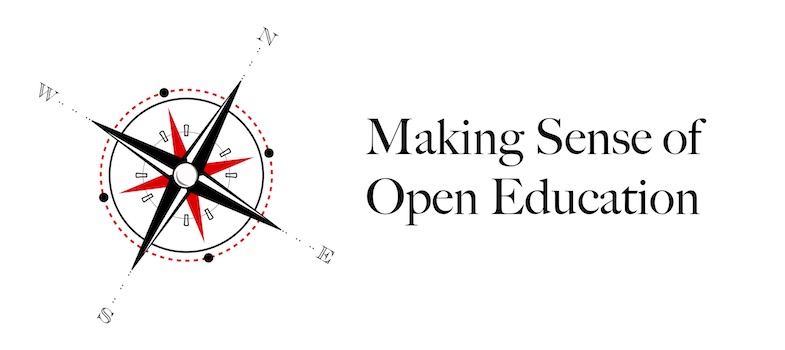back to the Distance education - MOOC discussion
Thanks to Lauren Anstey's tweet, i had the thought that i should create a graph explaining my understanding of the MOOC, Distance education, e-learning discussion.
My understanding goes something like this:
Distance education, e-learning, MOOCs are part of the same narrative/need: How do we provide education where we can't be physically?
What changed dramatically?
Content availability: The internet has made (almost) everything available, and the "speed of sharing" is increasing. This, in turn, opens a new possibility: self-directed learning (Heutagogy). While it's hard to imagine at an early stage (elementary school, maybe?), from secondary level on, it makes very much sense: (young, responsible) adults creating their life-projects, finding opportunities and learning as they go, with much less separation between the theory and the practice than we've invented in the 20th century.
Where do OER go, then? Well, OER have been positioned as contents for education for the most part. They're not a framework to understand education, and don't really even challenge traditional methods of education. In a sense, with easier access to textbooks, it could be argued that "teaching to the textbook" is a likely outcome of OER's massification. OER could very well incentivize the status quo of teaching methods.
Open Pedagogy, Open education, Open Educational Practices are the potential challengers of the status quo of the "sage on the stage", but that's not the designated task of OERs. To be clear, that does not diminish the value of OER, since ("legal") access to contents can be a highly valuable facilitator of learning. However, maintaining the current asymmetries between the content creators and the users, between the teacher and the students will result in prolonging educational approaches that we know to be passé (to say the least).
The North-South problem with OER
This is a problem when we look at North-South relationships. If the North remains the only viable, accepted, renowned content provider (because they have the skills, the Knowledge, the know-how, the reputation) and the South is viewed narrowly as the passive consumer of the OERs, we are missing the possibility of transformation.
Where do Wikipedia assignments fit into this?
(if you've been following me from the beginning of the course, you're not surprised i bring this up) ;-)
The approach that the Wikimedia movement ("Wikipedia") proposes is to go from a teacher+textbook centric approach to a student-knowledge creation approach. Students do the research and condense it into contents, with the support of their teacher+librarian, and then share them with the world (in the form of Wikipedia articles, Wikibooks, Pictures and Videos for Commons, etc.). The resulting contents are all CC compliant, available for re-use, re-mix, improvements, download, for the world to benefit from. Did i mention that publishing those contents provides an authentic audience, and forces students to deal with real-world critics of their work?
That's my braindump for today!
